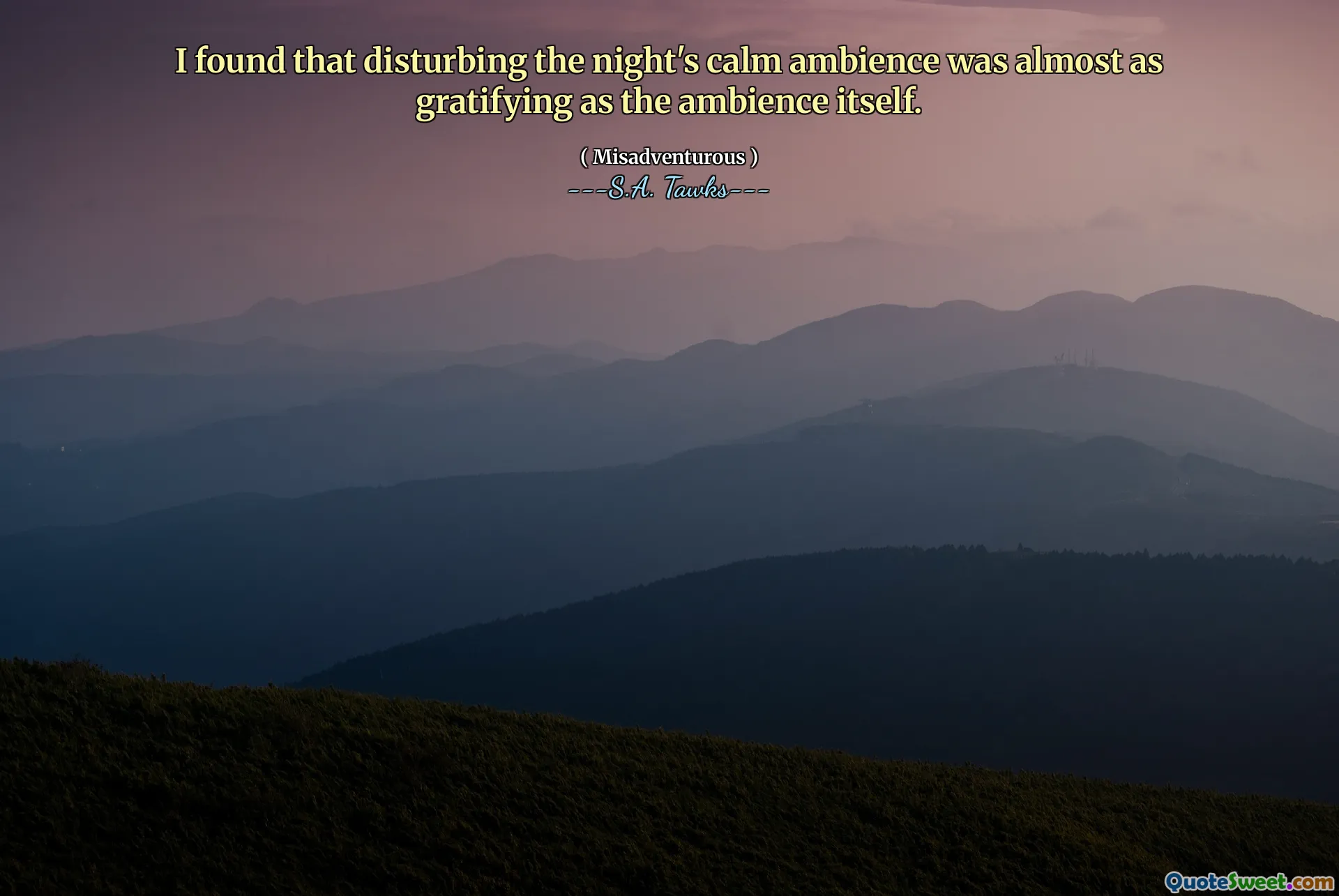
I found that disturbing the night's calm ambience was almost as gratifying as the ambience itself.
The quote evokes a compelling paradox about human nature and our relationship with tranquility. It suggests that there is an intrinsic pleasure, perhaps even a thrill, in disrupting peace and quiet that many might take for granted. Misadventurous acts—whether breaking a silence, challenging comfort zones, or stirring unrest—often serve to heighten our awareness and appreciation of the calm that usually prevails. It hints at a complex emotional dance: on one hand, the tranquility provides comfort and serenity; on the other, the act of disturbing that serenity awakens a different set of sensations—excitement, rebellion, or a sense of power. This dichotomy can lead to introspection about the human tendency to seek contrast, thrill, or complexity amid routine or peace. It questions whether disturbance is a mere act of defiance or a vital component of experiencing life fully. Sometimes, in moments of silence or calm, we can become complacent, not truly appreciating the contentment until it's challenged. In that sense, the quote captures a universal truth: the interplay between tranquility and disruption is fundamental to our emotional landscape. Such behavior might also reveal an underlying desire for novelty or a way to break free from monotony. Ultimately, this perspective encourages us to reflect on how our actions influence our perception of serenity and whether disturbance enriches our experience or diminishes it.







